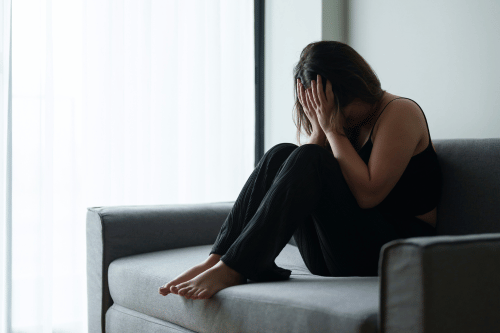Gabapentin for Anxiety? Off label Uses, Benefits, and Safety
Understanding Gabapentin
What is Gabapentin?
Gabapentin is an anticonvulsant medication originally developed to treat seizures. It is FDA-approved for partial seizures and nerve pain such as neuropathic pain and pain from shingles. It is also used off-label for various psychiatric conditions.
Mechanism of Action
Gabapentin works by modulating calcium channels in the brain, which affects nerve signaling. This mechanism of action may contribute to its anxiolytic-like and antinociceptive actions. While not a traditional anxiolytic, gabapentin shows promise in altering symptoms of anxiety.
Gabapentin’s Application in Anxiety Treatment
Off-label Use for Anxiety
Gabapentin for anxiety is an off-label use, often applied when first-line anxiety medications are ineffective. It has been studied for generalized anxiety disorder, social anxiety disorder, and anxiety in breast cancer patients. Gabapentin is also used to support alcohol-dependent patients in managing anxiety symptoms during alcohol withdrawals.
How Gabapentin Relieves Anxiety Symptoms
Gabapentin may reduce abnormal excitement in the brain linked to severe anxiety. It can lower baseline anxiety symptom scores and support reductions in anxiety, particularly in social phobia and public speaking situations. Gabapentin can also be useful for patients with dual diagnoses, such as substance use disorder and bipolar disorders.
Dosage and Administration
Typical Dosage for Anxiety
Daily doses vary based on the patient’s condition and medical history. A common dose of gabapentin for anxiety ranges from 300mg to 1800mg per day, taken in divided doses. Extended-release tablets or oral solutions may be used based on patient preference.
Factors Affecting Dosage
Factors like age, weight, kidney function, and type of anxiety disorder impact the dose of gabapentin. Dose adjustments are often required in patients with renal impairment or those taking other psychiatric medications. Always consult a qualified healthcare provider for proper dosage guidance.
Bioavailability and Onset of Action
Gabapentin has variable bioavailability, decreasing at higher doses. The onset of anxiolytic effects may be noticed within a few days, but full improvement in anxiety symptoms often requires several weeks. It is essential to take gabapentin with a glass of water and follow the prescribed times per day.
Efficacy and Benefits
Potential Benefits for Anxiety Patients
Gabapentin may benefit patients with anxiety disorders who do not respond to antidepressant medication or traditional anxiolytics. Clinical studies show improvements in anxiety symptoms and anxiety change scores in certain psychiatric patients. It may also help in the management of anxiety during alcohol dependence treatment.
Duration to Notice Improvements
Patients may begin to notice reductions in anxiety within 1-2 weeks. However, anxiety treatment using gabapentin should be assessed over several weeks to determine its effectiveness. Anxiety at week four or later is a more accurate indicator of success.
Side Effects and Risks
Common Side Effects
Common side effects include drowsiness, dizziness, blurred vision, and dry mouth. Involuntary eye movement and Restless Leg Syndrome have also been reported. These effects are generally mild and may fade as the body adjusts.
Serious Potential Side Effects
Serious potential side effects include allergic reaction, swelling, difficulty breathing, and abnormal excitement. Patients with psychiatric disorders or a history of substance use disorder should be closely monitored. Gabapentin may rarely cause suicidal thoughts in psychiatric patients.
Mitigating Risks and Precautions
Proper screening using inclusion criteria and exclusion criteria is key. Discuss your full medical history with your psychiatric provider. Avoid alcohol while using gabapentin to prevent enhanced adverse effects.
Integrating Gabapentin into Anxiety Treatment
Combining with Psychotherapy
Gabapentin is often used as adjunctive therapy alongside behavioral therapy or CBT. This combination improves the effectiveness of treatment for anxiety disorders. Psychotherapy helps patients manage feelings of anxiety and develop coping strategies.
Use with Other Medications (e.g., SSRIs)
Gabapentin can be safely combined with SSRIs or antidepressants under medical supervision. It is not a replacement for standard pharmacologic treatment but may enhance outcomes. Always coordinate care with a psychiatric provider.
Considerations for a Comprehensive Anxiety Plan
An effective treatment of anxiety often includes medication, therapy, and lifestyle changes. Regular follow-up with a healthcare provider ensures proper dose adjustments and monitoring. For individuals with co-occurring alcohol use disorders, Tennessee Behavioral Health offers outpatient programs tailored for dual diagnosis care.
Comparison with Other Anxiety Treatments
Gabapentin vs. Xanax
Unlike Xanax, gabapentin has a lower risk of addiction and withdrawal symptoms. It does not cause rapid mood shifts or intense sedation. Gabapentin may be better suited for long-term anxiety management.
Risk of Misuse
Gabapentin does carry a risk of misuse, particularly in people with a history of substance use. Psychiatric conditions and medical conditions must be considered before starting treatment. Use only under the supervision of a qualified healthcare provider.
Discontinuing Gabapentin Safely
Stopping gabapentin suddenly can lead to withdrawal symptoms such as anxiety, sweating, and tremors. Tapering under the guidance of a psychiatric provider is essential. Do not stop taking gabapentin without medical attention.
Psychiatric Perspective
Why Psychiatrists Prescribe Gabapentin
Psychiatrists may prescribe gabapentin when standard anxiety medications are ineffective or poorly tolerated. It is also used in the treatment of alcohol dependence and mood disorder stabilization. The drug shows promise in psychiatric disorders with anxiety features.
Evaluating Its Overall Value
Gabapentin offers moderate anxiolytic effects without the addiction risks of benzodiazepines. It is considered an effective treatment option for specific psychiatric patients. Jefferson JW and Adam F have highlighted its value in multiple clinical studies.
Accessibility and Affordability
Availability of Online Prescriptions
Gabapentin may be available through licensed telehealth services for patients who meet medical criteria. Always ensure prescriptions come from a legitimate psychiatric provider. Online access increases availability for those in remote areas.
Cost Considerations
Gabapentin is available as a generic drug, making it more affordable than many newer anxiety medications. Generic drug price comparisons show it is often covered by insurance. This makes it a cost-effective choice for the treatment of anxiety.
At Tennessee Behavioral Health, we understand that no single medication works for everyone. Gabapentin may support anxiety relief when paired with outpatient treatment, especially for those facing both anxiety and substance use challenges. Our program combines psychiatric expertise, behavioral therapy, and medical monitoring to ensure safe and effective care for mental health conditions. If you or someone you know is struggling with anxiety, contact us to explore your options for care.

FAQ's
Yes, gabapentin is sometimes used off-label to ease anxiety symptoms during withdrawal from benzodiazepines and alcohol.
Gabapentin may be prescribed for anxiety in older adults, but dosage must be carefully adjusted due to changes in kidney function and increased sensitivity.
There is no direct interaction, but stimulants like caffeine and nicotine may counteract gabapentin’s calming effects in some individuals.
.
Veterinarians sometimes prescribe gabapentin to manage anxiety in dogs, especially for travel or post-surgical recovery, under veterinary supervision.















